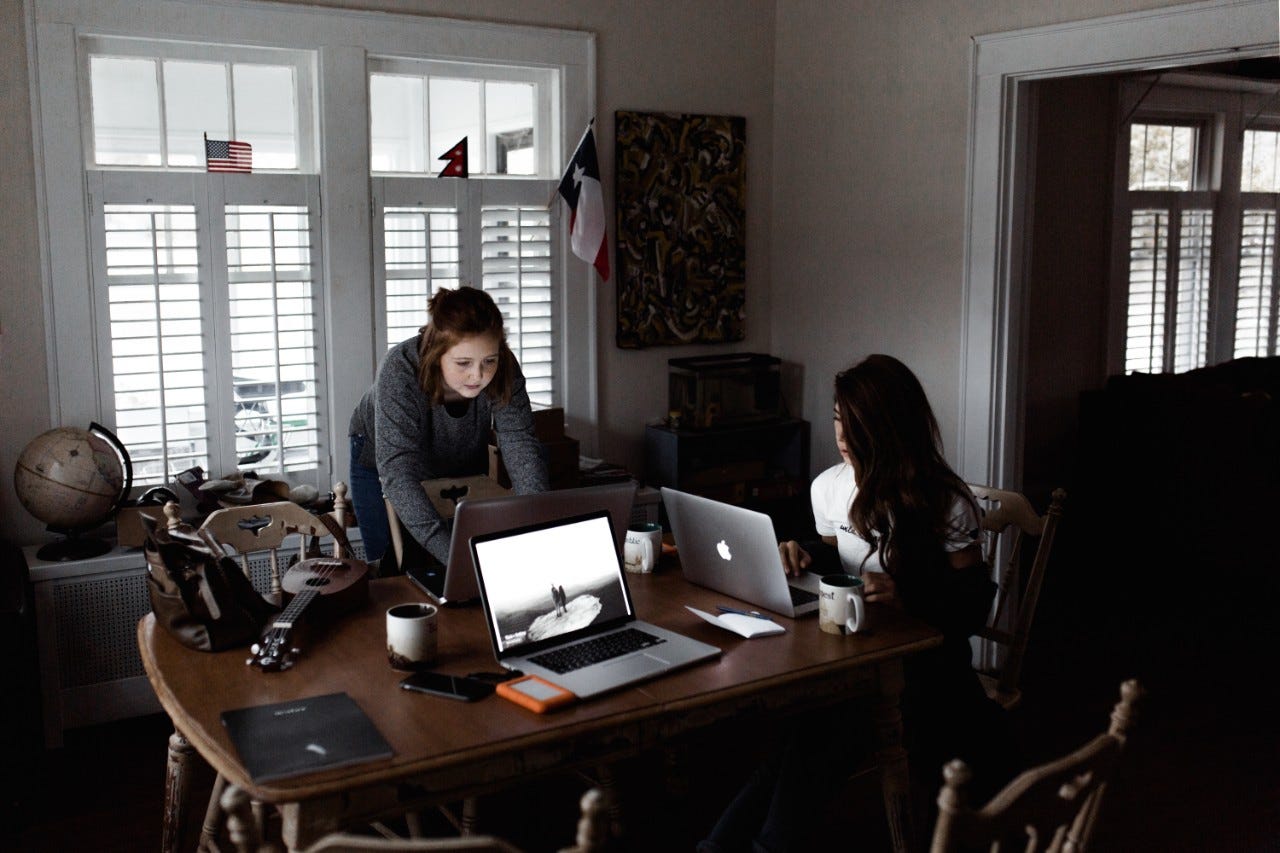Bye bye Hotel Mum – hello shared flat
Leaving home and moving into a shared flat is a big step towards independence.

- Starting a shared flat: tips from an expert
- How many people do you want to share with?
- Rental agreement: who is the main tenant?
- Rental agreement with parents’ signatures
- Household contents/personal liability insurance for shared flats
- Who pays how much rent?
- Rental deposit
- Shared flat with rules
- Check ads carefully
“Let’s get a flat together when we go to university in Zurich!” We had the idea at a party on a rainy winter’s evening at the end of February. Six months later my school friend and I really did pack up all our things and move into our first shared flat.
When we moved from small town St. Gallen to the bright lights of Zurich in 2008 in our early twenties, I would never have imagined that we’d still be living together today. Back then, we didn’t think about who would sign the rental agreement, how we’d split the rental deposit and whether we should have a household budget. We’ve been lucky: twelve years and three flats later, we’re still living together in harmony and have never really argued.
But things don’t always go as smoothly. Then you need clear rules and agreements – and contracts, because living with other people isn’t always straightforward.
Starting a shared flat: tips from an expert
Fabian Gloor, a lawyer and head of the hotline of the tenants’ association, explains what you should bear in mind when setting up a flat share and how to react in the event of disputes with your flatmates.
How many people do you want to share with?
Before leaving home, you should think about what you want. What do you think living with other people will be like? Do you need a lot of time to yourself? Or do you only really come into your own when you’re in a big group of people? Do you prefer to live with men or women? How many flatmates do you want – one, two, or maybe even eight?
Rental agreement: who is the main tenant?
In general there are two options:
- All the tenants sign the rental agreement and are therefore all main tenants.
- Or one person signs the agreement and signs subtenancy agreements with the other flatmates.
Fabian Gloor clearly recommends the second option. “If there’s only one main tenant, all flatmates are more flexible. The subtenants can terminate their contract if they want to move out and need only provide a reasonable and solvent new tenant. It also means that not all the tenants are liable if one doesn’t pay the rent.”
A major disadvantage of this option is that the main tenant has power over their subtenants – they can, for example, terminate the subtenancy agreements. And what happens if the main tenant terminates their contract? “Then the subtenancy agreements also have to be terminated, as these can’t have a longer term than the main rental agreement. However, there is the option of transferring the main rental agreement to another person and thus possibly avoiding a rent increase,” says Gloor. However, the main rental contract can only be overwritten with the consent of the landlord.
Rental agreement with parents’ signatures
It’s an advantage for the landlord if the parents also sign the rental agreement. However, Fabian Gloor advises against this: “If the landlord doesn’t insist on it, I wouldn’t do it. As soon as the parents co-sign, they are jointly liable for the flat and the rent – and not only for their own child, but for all flatmates equally.”
Household contents/personal liability insurance for shared flats
Household contents and personal liability insurance are a must for the main tenant, says Fabian Gloor. “The subtenants should also take out liability insurance.” This is the only way to ensure that they’re adequately covered in the event of glass breakage or parquet damage, for example.
Who pays how much rent?
As a rule of thumb, if the bedrooms are the same size, the rent is divided equally. If the bedrooms are different sizes, the rent can be calculated based on square metres.
Rental deposit
“Again, there are several possibilities,” says Fabian Gloor. “If several main tenants live in the flat, everyone pays an equal share of the deposit into a joint blocked account. If there’s only one main tenant, they pay the deposit in full.”
However, the main tenant then has the option of demanding a rental deposit from their subtenants and paying it into a separate blocked account. “The tenants’ association generally advises against taking out deposit insurance. At first glance it may seem attractive, but ultimately it’s very expensive, because the money you’ve paid in over the years is gone. With a deposit, on the other hand, you get back the full amount including interest as long as no rent is outstanding and no damage has been caused to the flat,” says Gloor.
Shared flat with rules
To live together peacefully you need tolerance, transparency and open communication. It is important to create clear conditions. Fabian Gloor: "If you want, you can set out the agreed rules in a written contract. Then all flatmates know where they stand.” It’s also a good idea to hold regular meetings to discuss any problems as they occur. You can make these “meetings” more appealing by combining them with a shared activity, such as a home-cooked meal or a games evening.
Check ads carefully
Better safe than sorry! In recent years, fraudsters have found they can make a lot of money out of ads for shared flats. They pretend to be landlords or advertise flats that don’t even exist in order to collect rent and deposit. So, make sure to check the flat ads carefully and view the place before putting down a deposit. Fabian Gloor advises: “If the landlord or property management company demands payments, for example via Western Union, don’t sign the rental agreement.”


